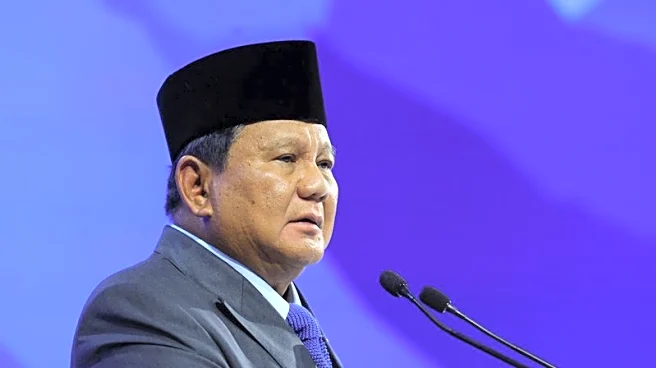Rapid Read • 7 min read
Chinese Foreign Minister Wang Yi emphasized the importance of viewing India as a partner rather than an adversary during his visit to Delhi. This visit marks a significant step in improving relations between the two countries, which have been strained since the 2020 clashes in the Galwan valley. Wang Yi met with Indian Foreign Minister S Jaishankar and National Security Advisor Ajit Doval to discuss various bilateral issues, including trade, pilgrimages, and river data sharing. The meetings are seen as a sign of thawing relations, with both countries taking steps to normalize ties, such as resuming visa services and direct flights. The discussions are expected to lay the groundwork for Indian Prime Minister Narendra Modi's upcoming visit to China for the Shanghai Cooperation Organisation summit.
AD
The improvement in India-China relations is significant for regional stability and economic cooperation. Both countries are nuclear-armed neighbors with substantial influence in Asia. The resolution of border disputes and the normalization of relations could lead to increased trade and collaboration on global issues. This development comes at a time when India's relationship with the United States is facing challenges, particularly due to recent tariffs imposed by President Trump. Strengthening ties with China could provide India with strategic leverage in its international dealings, especially in the context of its interactions with Russia and the U.S.
The meetings between Wang Yi and Indian officials are expected to pave the way for further diplomatic engagements, including Modi's visit to China. This visit could potentially include bilateral talks with China's President Xi Jinping, although this has not been confirmed. The ongoing negotiations and agreements on border patrolling arrangements are likely to continue, aiming to maintain stability in the disputed regions. The broader implications of these developments may influence India's foreign policy and its strategic partnerships in the region.
AD
More Stories You Might Enjoy












